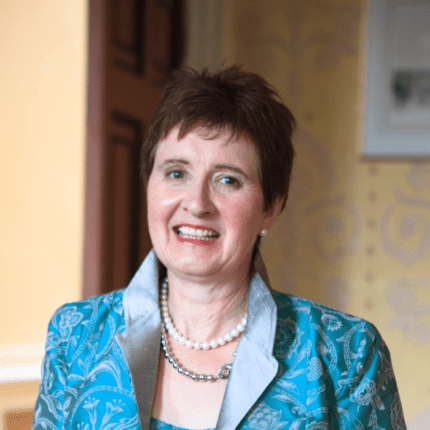The government has announced its plans for new legislation to protect freedom of speech in universities. But it’s not at all clear this top-down approach will end the free speech wars.
As has been explained in detail on this site, the Higher Education (Freedom of Speech) Bill is a mixed bag. Some of the proposals largely replicate the existing legal requirement on universities to uphold free speech with the law – but others are more far-reaching.
Universities and students’ unions will be fined if they are deemed by the Office for Students to fail to uphold free speech sufficiently. And crucially, the free speech requirement will be extended to apply directly to students’ unions, its members and external speakers – making it much harder for unions to turn down student requests for speakers with controversial but lawful views.
These steps will certainly push university and union managers to keep free speech at the forefront of their minds, and will be encouraging to those minority of students who feel unable to invite particular speakers in case they are deemed too controversial. That, in principle, is a good thing. But sweeping ministerial statements about upholding free speech is one thing – working out the practical consequences is quite another.
A narrative of moral panic
Part of the confusion in the government response is because accusing universities of failing to be bastions of liberal democracy plays to voters’ misconceptions. As we explain in our recent book, Freedom of Speech in Universities: Islam, Charities and Counter-terrorism, 52% of British adults think that free speech is under threat in universities compared to only 14% who disagree, according to a 2019 poll by the thinktank Theos.
Nearly a third believe “Islamic extremism” is common on campus. In fact radicalisation on campus is very rare (only 15 referrals were made by English universities to Prevent in 2017-18). In the same year, out of 62,094 requests for external speakers, only 53 were rejected. And a Wonkhe survey of 61 students’ unions found that in 2019-20, just 6 speaker events out of nearly 10,000 were cancelled. High-profile media stories of students cancelling events do not reflect the huge number of events that go ahead unimpeded every year.
But if speaking of a crisis of free speech is exaggerated, that doesn’t mean there aren’t problems. We don’t know how many students choose not to request speakers out of risk aversion. Our research found that some Muslim students avoid inviting speakers with controversial views for fear of being perceived as extremists under Prevent. We also found that some students’ union managers have felt they had to discourage students from inviting such speakers, out of fear of breaching charity law and facing negative media backlash. The government’s plans won’t resolve these issues.
Moreover, though a major 2019 survey of 2,153 students found that 70% felt comfortable expressing their views on campus, 25% did not, rising to 34% of Conservative Party supporters and 32% of Leave supporters. Threatening universities and unions with fines in relation to external speakers will not help students with minority views (in the campus context) feel more comfortable expressing them in the classroom.
A student and staff-led approach
Instead, universities and students’ unions must respond urgently to the government’s interventions by making meaningful reform happen on campus. The recent work of a group of students’ union officers, supported by Wonkhe, on drafting a code for students’ unions to uphold freedom of speech and political diversity is exemplary here.
But this is not something for students’ unions alone to deal with. Academics need to be encouraged by their universities to be far more proactive in making space in course content (in the sciences as well as the humanities) for rigorous debate about relevant divisive issues.
Drawing on the pedagogy of C.S. Pierce, we recommend that lecturers establish a “Community of Inquiry” (CofI) in the classroom. This differs from a normal seminar, in that in advance of the debate, participants explicitly discuss and agree to the ground rules, giving everyone ownership over the debate.
Students should be encouraged to follow a set of ‘procedural values’ – such as tolerating each other’s views, agreeing upon whether or not to use potentially inflammatory terms, being willing to listen, and giving a right to reply. We all believe that we adhere to such values, but it is really hard to do so consistently. Establishing the CofI can take multiple sessions of building trust and recognising one another as co-dependent collaborators in learning.
This would go some way to ensuring that students with minority views feel fully able to express their views on campus.
Beyond the binary
Beyond this, universities need to show to wider society an alternative to the simplistic binary in the free speech wars – that the only options are either no-holds-barred libertarianism or no-platforming. Instead, we propose four possible approaches to handling freedom of speech (within the law) practically.
These can be used for external speaker events, and also as part of the classroom CofI – students can agree in advance what the parameters of speech will be, to ensure everyone feels able to contribute.
| Approach | Characteristics | Example in University Context |
|---|---|---|
| Liberal | Supports the exercise of freedom of speech as far as possible, and the expression of any views, provided they are within the law. | University/students’ union upholds students’ request for an external speaker well-known for expressing hostile views towards immigrants. University may ask the speaker in advance to adhere to a code of conduct wherein speakers should avoid expressions that are commonly considered grossly offensive or hateful. |
| Causing offence not seen as a valid reason to avoid exercise of freedom of speech. But speakers should moderate their language, expressing their view without using expressions that many others will find grossly offensive or hateful. | ||
| Libertarian | Supports the exercise of freedom of speech as far as possible, and the expression of any views, provided they are within the law. | University/students’ union upholds students’ request for this speaker. Speaker is able to express views on this topic freely. University does not require the speaker to moderate language or put in place any other restrictions on the speech. |
| Speakers should be free to use any lawful language they wish, including expressions that others find grossly offensive or hateful. | ||
| Guarded liberal | Supports exercise of freedom of speech, but not to the point of causing significant offence to others. | University/students’ union may or may not choose to uphold students’ request for this speaker. If it does, university imposes mitigating conditions, e.g. requiring an opposing voice on panel, or requiring speaker to submit the speech in advance or limit the range of their topic. |
| Risk-averse. Speech may be facilitated but under restrictions designed to reduce risk of offence. | ||
| No-platforming | Prioritises protecting people from offence over upholding freedom of speech. Willing to prevent speech events from happening in order to reduce risk of offence. | University/students’ union does not uphold students’ request for this speaker. |
| Can include preventing particular people from speaking, or disallowing discussion of particular topics. |
Alison Scott-Baumann and Simon Perfect (2021) Freedom of Speech in Universities: Islam, Charities and Counter-terrorism. Abingdon, Oxon: Routledge, p. 27.
How might this work in practice for external speakers? As a default, we recommend that universities and students’ unions pursue the liberal approach – upholding free speech as far as possible within the law but with limits on the most offensive language. This could mean universities and unions hosting people with controversial, even offensive views; we believe that, on balance, it is better for society that such views are heard, especially in universities, where they can be subject to critical examination and rebuttal.
Unlike the government’s proposals, however, our model is flexible, explicitly recognising that context matters. Indeed, occasionally universities and unions may need to deviate from the default liberal approach. An example would be for a vocal Holocaust denier; whilst their views are lawful, we would consider it perfectly reasonable for a university to reject a request for such a speaker, since their views are grossly offensive and go hand in hand with antisemitism. If such a speaker were to be invited, there would likely need to be detailed preparation undertaken, to be ready with detailed counter arguments that go beyond an emotional response.
To take another pertinent example – an anti-vax conspiracy theorist. A university or union might decide to host them using the liberal approach, coupled with a strong, challenging chair. In this way the university / union would uphold the speaker’s right to speak, while exposing their views to robust interrogation and critique. Alternatively, it would be reasonable for the university / union to adopt a guarded liberal approach, imposing certain restrictions (such as requiring an overview of the speech in advance) but allowing the speech to go ahead. In general guarded liberalism is much to be preferred to no-platforming.
Adopting such a model allows for flexible decision-making on a case by case basis, within a standard framework. We would encourage universities and unions to have open conversations with event organisers to discuss which approach to speech is best for each event. The fourfold model can also be a way for universities to proactively demonstrate to the public how they are creating space for important debate. For example, they could explain on their website that they adopt the liberal approach as a default position, but that occasionally another approach is more appropriate, and indicate anonymously how many events of each type have been held annually.
Changing the narrative
Ultimately, while MPs battle over this new free speech bill, universities need to be acting now to proactively challenge the popular, even populist narratives of moral panic about the sector. Reforming courses to create more space for debate in classrooms, and transparently explaining how they handle external speaker events (and how many are handled in what way), will be critical. It is only these kinds of university-led reforms that will bring change to the campus free speech wars.
Simon Perfect and Alison Scott-Baumann are authors of Freedom of Speech in Universities: Islam, Charities and Counter-terrorism (Routledge, 2021).













